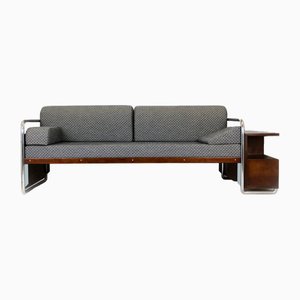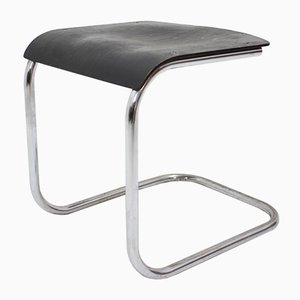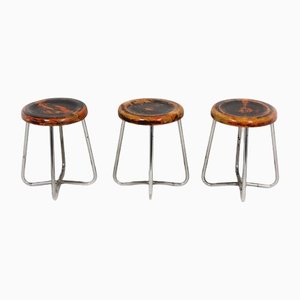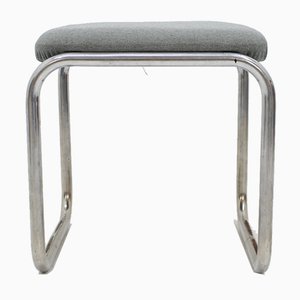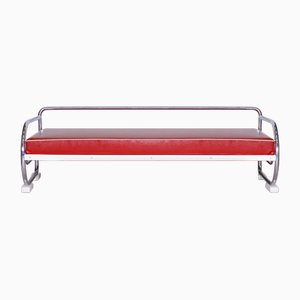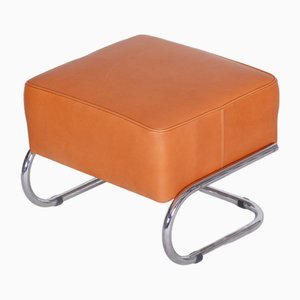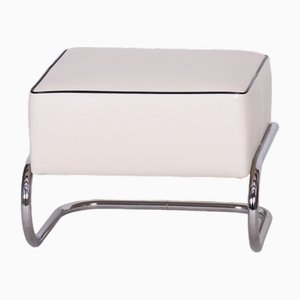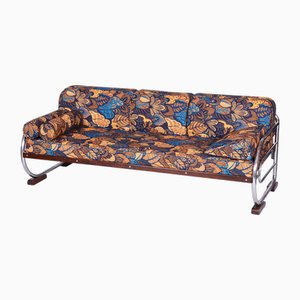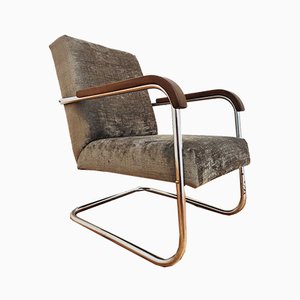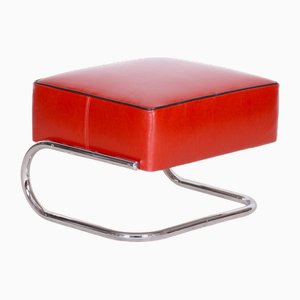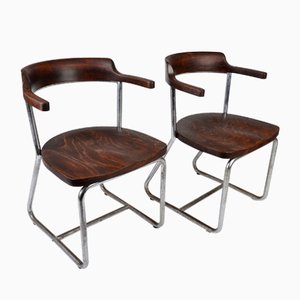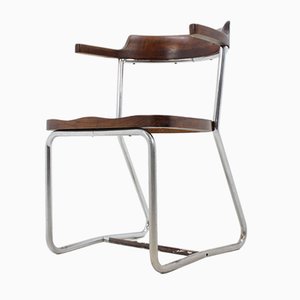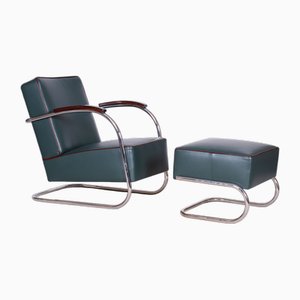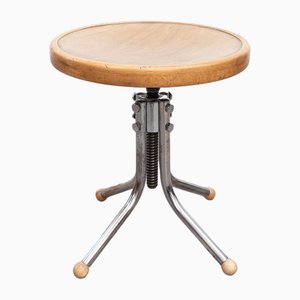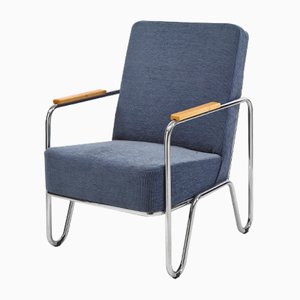
Czech manufacturer Slezak is renowned for its sleek Bauhaus style furniture and rich 20th Century heritage.
Founded in 1908 by Robert Slezak, a locksmith, in Bystrice pod Hostýnem, the company evolved from a small metal workshop to a highly respected metal chair manufacturer. By the 1930s, Slezak had become one of the most important makers of Bauhaus tubular steel furniture, creating pieces for designers such as Mart Stam, Michael Thonet, Jindřich Halabala, and Rudolf Netík. Standouts include Mart Stam's classic K10 Chair, which could be regarded as one of the most highly influential furniture designs of the 20th century. Other recognizable examples are the cantilever B 62 and B 64 chairs, designed by Marcel Breuer, which were produced by Slezak under license from the German manufacturer Thonet.
The company not only produced modern designs but also had a modern approach to sales, offering items through catalogs and self-branded stores around Czechoslovakia. With the onset of World War II and the Nazi occupation, the company had to turn its production to ammunition for anti-aircraft guns and optical components for Zeiss. After the war had ended and communism took over, the factory was nationalized and was eventually acquired by KOVONAX, a company established through privatization in 1992. Today, Slezak's current owners continue to successfully build on the company's rich design heritage by collaborating with architects, designers, studios, galleries, museums, schools, theaters, hotels, restaurants, cafes, offices, VIP function rooms, and private individuals across the world. Slezak has exhibited at the Furniture Show in Stockholm, Designblok in Prague, and Salon del Mobile in Milan.
One of the manufacturer’s most notable recent projects was the repair and recreation of original furniture for the recently opened AXA Hotel in Prague. The hotel is in what was originally a multi-functional sports-centered building, designed and constructed by architect and master builder Václav Pilc in 1930-32. The building originally included commercial spaces such as shops, restaurants, and offices and rooms that were decorated with functional minimalist Bauhaus-style furniture. Pilc’s descendants undertook the recent restoration of the hotel and they want to carry on a tradition of physical and mental balance and health in the building, with a fitness center and swimming pool in an ecologically sustainable manner. The hotel is an homage to the elegant minimalism of the 1930s and the space presents a beautiful showcase of Slezak’s workmanship and its founder’s legacy.

